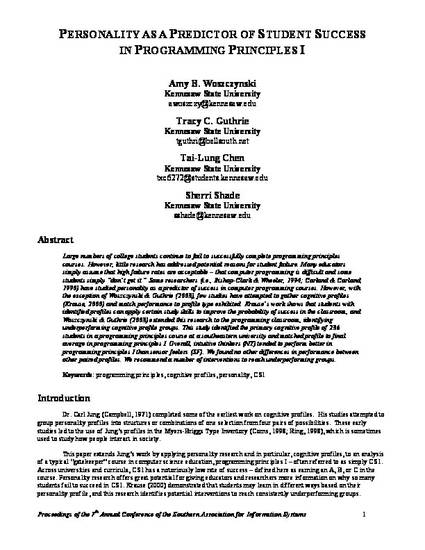
Large numbers of college students continue to fail to successfully complete programming principles courses. However, little research has addressed potential reasons for student failure. Many educators simply assume that high failure rates are acceptable – that computer programming is difficult and some students simply “don’t get it.” Some researchers (i.e., Bishop-Clark & Wheeler, 1994; Carland & Carland, 1990) have studied personality as a predictor of success in computer programming courses. However, with the exception of Woszczynski & Guthrie (2003), few studies have attempted to gather cognitive profiles (Krause, 2000) and match performance to profile type exhibited. Krause’s work shows that students with identified profiles can apply certain study skills to improve the probability of success in the classroom, and Woszczynski & Guthrie (2003) extended this research to the programming classroom, identifying underperforming cognitive profile groups. This study identified the primary cognitive profile of 236 students in a programming principles course at a southeastern university and matched profile to final average in programming principles I. Overall, intuitive thinkers (NT) tended to perform better in programming principles I than sensor feelers (SF). We found no other differences in performance between other paired profiles. We recommend a number of interventions to reach underperforming groups.
Available at: http://works.bepress.com/amy_woszczynski/4/
